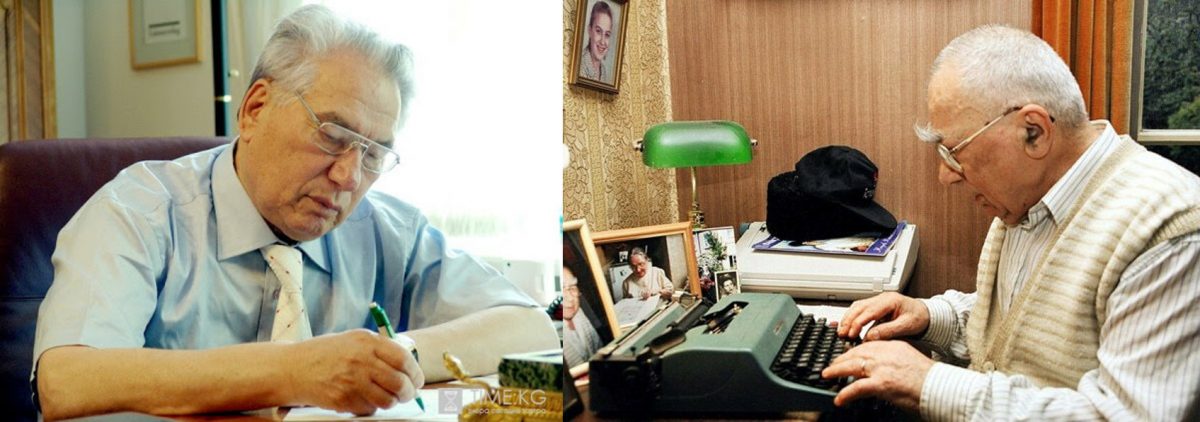Cengiz Aitmatov was born on December 12, 1928, in the village of Sheker, in Kyrgyzstan. Due to the fact that the adult population was at war, the young had to work. When Aitmatov was only fourteen years old, he worked in the secretariat of his village on such tasks as counting agricultural machinery and collecting taxes. Later Aitmatov, who left the village of Sheker to Kazakhstan, studied at the Dzhambul Veterinary College. After that, he went to Bishkek and continued his studies at the Frunze Agricultural Institute. From here, going to the Maxim Gorky Literary Institute, Aitmatov began to write in the newspaper Pravda.
Having gained fame thanks to his works, in 1957 he was admitted to the USSR Writers Union. In 1963 he received the Lenin Prize. His works have been translated into over one hundred and fifty languages, including Turkish.
From 1990 to 1994, he represented the Soviet Union and the Russian Federation as ambassador, and then, until 2008, the Kyrgyz Republic.
In 2008, while in Russia, on the set of the film “And the day lasts longer than a century,” he became ill, after which he was diagnosed with kidney failure. He was brought to Germany for treatment. Cengiz Aitmatov, who was undergoing treatment at the Nord Clinic, died on June 10, 2008.
No matter how much he is remembered and talked about, it’s still not enough. In the centre of his works there is always The Man. Describing the Kyrgyz people in a narrow sense, the writer actually in a broad sense describes the entire Turkic world. First of all, a universal approach to the general feelings of humanity creates a resource/source. Aitmatov’s peculiarity, which will leave a mark on history, is that he consciously mentions his people and his geography.
We should not forget that in the geography of Turkic cultural there are two great Djengis: Dagji in the west and Aitmatov in the east. For our culture, both “east” and “west” are important, because raids from east to west have been going on for centuries. At the same time, this means a meeting of Turkic tribes in the same cultural environment. If you start with “Farewell, Gulsary !” or “And the day lasts longer than a century” and you reach “Dolls suspended on an almond branch” or “They were also people”, this meeting will take on its true meaning.
The greatest need of the Turkic world today is to remove cultural boundaries, despite geographical distances. If Cengiz Dugji and Cengiz Aitmatov meet each other in the same way as the West and the East, the Danube and the Syr Darya meet, that is, if you combine them together, this large geography will become “cultural geography”. On the one hand, they reminded us of a great story; on the other, they exposed/revealed an unprecedented crime for the whole world. They left their pain and longing in the letter … They told without fear and silence.
Tugba KURT YYLDYZ





